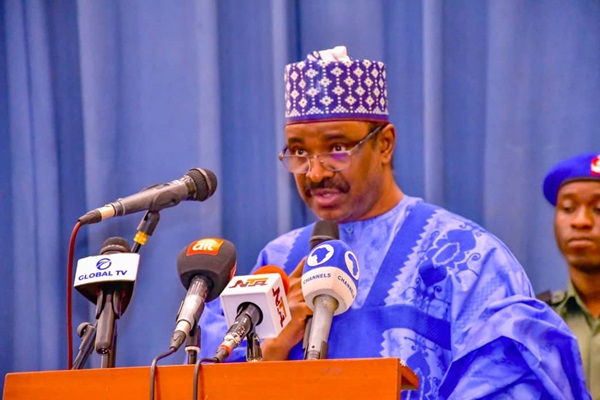
The Minister of Transportation, Sen. Said Alkali defended the ministry’s 2025 fiscal budget proposal of ₦744,028,687 billion before the joint committees of the Senate and the House of Representatives on Land Transport.
Speaking at the National Assembly in Abuja on Thursday, January 16, 2025, Alkali highlighted the ministry’s commitment to Nigeria’s Integrated Infrastructure Master Plan. He emphasised that the 2025 budget proposal aims to sustain the positive results achieved under the 2024 Appropriations Act.
“The objective of these proposals is to actualise the Renewed Hope Agenda of the present Administration, focusing on rail modernisation projects and improving other modes of land transportation in the country,” he stated. Alkali noted that increased funding is essential this financial year to enhance existing infrastructure within all agencies under the ministry.
Given the challenges in securing counterpart funding through loans, he urged the joint committees and the National Assembly to continue supporting the ministry. He emphasised that effective funding is crucial for ongoing projects and the initiation of new ones. Alkali described efficient transportation as vital for economic growth and as a gateway to the nation’s economy.
In discussing the performance indicators of the 2024 Budget, Alkali highlighted the rehabilitation of the narrow-gauge railway from Lagos to Kano, which is now facilitating freight transport from Lagos Port to the Dala Inland Dry Port in Kano. This development has marked a significant rise in economic activities in the region.
Moreover, the minister announced the recent commissioning of a 62-kilometer rail corridor linking Port Harcourt in Rivers State to Aba in Abia State. This corridor is intended to connect the Eastern Ports to the hinterland, facilitating trade and transportation in that area.
Alkali also mentioned the ministry’s collaboration with the Presidential Initiative on Compressed Natural Gas (CNG). Buses have been distributed to three transport unions: The National Union of Road Transport Workers (NURTW), the Road Transport Employers Association of Nigeria (RTEAN) and the National Association of Road Transport Owners (NARTO). This initiative aims to alleviate transportation difficulties stemming from the removal of petrol subsidies within the Federal Capital Territory (FCT) and improve distribution across the country.
He emphasised that these buses represent the government’s commitment to empowering citizens while transitioning to a cleaner energy economy. The minister added that the Nigerian Institute of Transport Technology is working with the Presidential CNG Initiative to develop and establish CNG Conversion and Training centres in Abuja, Zaria, Enugu, Borno and Kogi States, with plans to extend this initiative to all 36 States of the Federation shortly.
Earlier, the chairman of the joint senate and house committees on Land Transport, Sen. Adamu Aliero underscored the importance of transportation infrastructure to the nation’s progress. He noted that this budget defence represents a crucial moment for shaping the future trajectory of the country.
Aliero also pointed out the need to focus on developing the Nigerian rail system as the best alternative to reduce over-reliance on the country’s road network, which faces increasing pressure. He expressed optimism that the ministry’s initiatives will significantly contribute to improved transportation and economic growth in Nigeria.
With this budget proposal, Nigeria moves closer to fulfilling its infrastructural aspirations, ensuring a more efficient and sustainable transport system for all citizens.

